

Global Partnerships
The MDG-F has established a number of global partnerships with cross-border initiatives in relevant areas of our work, such as advocacy for the MDGs, civic engagement, the post-2015 debate, gender equality, indigenous rights, culture, nutrition and water governance.
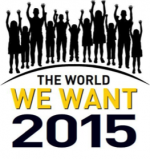
Building the post-2015 development agenda: open and inclusive global consultations
The MDG-F supported “The World We Want 2015,” an initiative launched by the UN system to help shape the post-2015 development agenda through global consultations with and mobilization of a broad range of stakeholders, including government, grassroots, academic and civil society organizations. As the largest cooperation mechanism specifically targeting the achievement of the MDGs, the Fund shared best practices and lessons learned from its 130 programmes around the world to enrich this debate, with a special emphasis on highlighting inequalities.

Millennium Campaign
The UN Millennium Campaign was established in 2002 to engage citizens in the achievement of the Millennium Development Goals. Working with UN partners and key global constituencies such as civil society, parliamentarians, faith groups and youth, the Campaign seeks to inspire people from around the world to take actions towards reaching the Goals by 2015. By teaming up with the Millennium Campaign, the MDG-F helped to develop an integrated UN-wide MDG advocacy and communications strategy. This partnership also supported advocacy initiatives in several countries, including the “Spanish Cooperation Week” in Spain, the citizen monitoring and feedback system Huduma platform in Kenya, the All Africa Parliamentary Conference on the Millennium Development Goals and Post-2015 Development Agenda in Ethiopia, the antipoverty coalition in Mozambique, the Citizen’s Feedback Initiative Tingog 2015 in Philippines and the post-2015 dialogue in El Salvador.

Platform HD 2010: Civic Engagement
Led by the Civil Society Unit of UNDP in collaboration with the United Nations Millennium Campaign, this programme sought to strengthen citizen and civil society participation in human development and multilateralism, ensuring greater voice and accountability in policies and practices related to the achievement of the MDGs.
To this end, United Nations Resident Coordinators in six developing countries launched initiatives to strengthen participation in planning, implementing and monitoring the MDGs and national development priorities, working closely with the UN Millennium Campaign. These countries were also part of the wider effort of Platform HD2010 at regional and global levels to channel southern civil society voices to the emerging vision of the new multilateralism. Together, the experiences under the two components informed a series of regional and global consultations to mark the 10-year review of the Millennium Declaration and the 20th anniversary of Human Development Report in 2010.

Innovation, knowledge and gender equality in Latin America
This partnership with the UNDP-Gender Team of the Regional Service Center for Latin America and the Caribbean, aimed at positioning gender equality as a priority issue in national and regional public agendas. This included the institutionalization of gender equality in policies and programmes, training and debate on gender and social protection, research on employment, decent work and women’s political participation, regional dialogues for gender equality in the post-2015 agenda and communication initiatives.
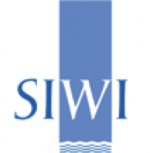
Towards transcultural transparency in water governance for indigenous communities
With this research partnership, the Water Governance Facility of UNDP at the Stockholm International Water Institute and the MDG-F sought answers to questions about the challenges in water governance among indigenous communities. Why is water supply and sanitation coverage so low in indigenous areas? Can improved and mutual understanding of the institutions - the rules, practices and values that underpin water and sanitation arrangements - help overcome the ineffectiveness of existing interventions?
The Towards Transcultural Transparency research examines the perspectives of communities, service providers, development cooperation actors and local authorities regarding how water and sanitation services should be organized in indigenous areas. The long-term goal is to provide more cost-effective sanitation and water services that are designed and operated in a way that sustainably meet the needs and aspirations of indigenous peoples.
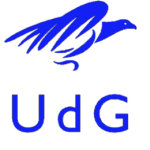
Learning from the MDG-F experience in culture and development programming
This partnership brought together two universities (University of Girona and Technologic University of Bolivar) and the MDG-F with the intent of increasing the role of culture in development. Using the 18 MDG-F joint programmes in the culture and development thematic window, the partners systematized knowledge and lessons learned and used these to develop models for programme development and implementation.
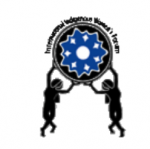
Participation of indigenous women in MDGs monitoring
The alliance between the International Indigenous Women's Forum (IIWF-FIMI) and the MDG-F sought to increase indigenous peoples’ participation in MDGs monitoring processes. Lessons learned, best practices and challenges were mapped from the 48 MDG-F joint programmes that addressed the inequalities faced by indigenous people, with a specific focus on indigenous women and girls. Representatives from indigenous movements also shared their perspectives in different regional and international fora.

Renewed Efforts Against Child Hunger (REACH)
REACH is a global partnership established by UNICEF, FAO, WHO, WFP and IFAD that applies an equity-based approach to scale up nutrition interventions. REACH focuses on underweight children under five years of age to address the first MDG, the eradication of extreme poverty and hunger. REACH broadens the scope of nutrition, taking into account the interdependent causes of under-nutrition: food, health and care. Applying a multisectoral and equity-based approach, REACH and national partners identify country-specific needs and interventions aimed at reaching the most vulnerable. Through the alliance, REACH and MDG-F tested this approach in Mauritania to operationalize the country’s multisectoral Nutrition Action Plan (PAIN), which resulted in a lowering of the underweight prevalence among children. Twelve other countries confirmed their interest in replicating the initiative.
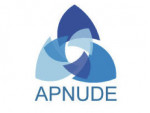
Panamerican Alliance for Nutrition and Development.
Together with PAHO and 16 other agencies, the MDG-F worked to tackle malnutrition in Latin America and the Caribbean using a multisectoral approach. This alliance produced knowledge about the factors leading to food insecurity and malnutrition, generating case studies and best practices. Through advocacy initiatives, decision-makers were informed about ways of tackling nutritional problems. A virtual community of practice can be accessed through the website: www.paho.org/nutricionydesarrollo